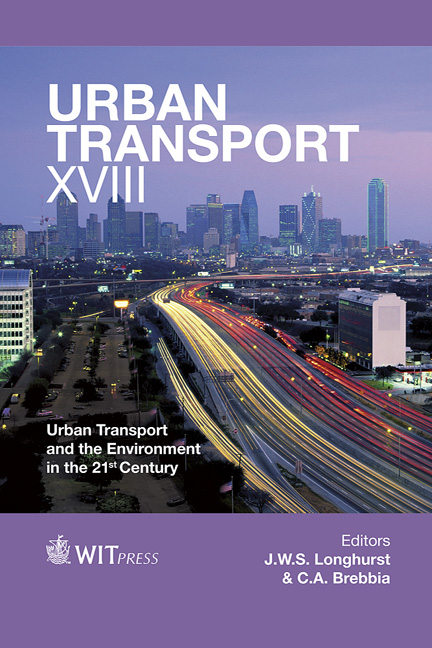Analysis Of Possible Risks In Introducing Congestion Charging And Carpooling Measures In Zagreb
Price
Free (open access)
Transaction
Volume
128
Pages
12
Page Range
433 - 444
Published
2012
Size
580 kb
Paper DOI
10.2495/UT120371
Copyright
WIT Press
Author(s)
M. Slavulj, I. Grgurević & J. Golubić
Abstract
Today citizen mobility represents both an interesting research area and a subject for the introduction of structural dynamic plans. There are a number of international technical and scientific projects which analyze and suggest mobility solutions for participants in urban transport. The scope of research includes the part related to problems in the execution of structural transport measures in the City of Zagreb. Problem identification refers to partial measures such as measures of mobility management (congestion charging and carpooling system). The problems are reflected through the following types of risk: technical and technological, organizational, economic, regulatory, political, etc. Each of these risks has a number of features that require a comprehensive analysis in order to implement measures to improve traffic flow in cities. One of the major problems is the absence of adequate legislation and determination in making such measures that will affect the improvement of traffic across the transport network of the city of Zagreb. To achieve a measure of mobility in the city, it is necessary to achieve a constructive dialogue with all the stakeholders who are included in the observed measure. Special attention should be paid to the legitimate needs of citizens, and proposed solutions through elaborate public discussions. Keywords: citizen mobility, mobility management, congestion charging, carpooling, external costs. 1 Introduction The City of Zagreb, being the capital with 804,200 inhabitants (in 2008) and with about 555,000 registered vehicles (in 2008), has recorded a significant
Keywords
citizen mobility, mobility management, congestion charging, carpooling, external costs.





